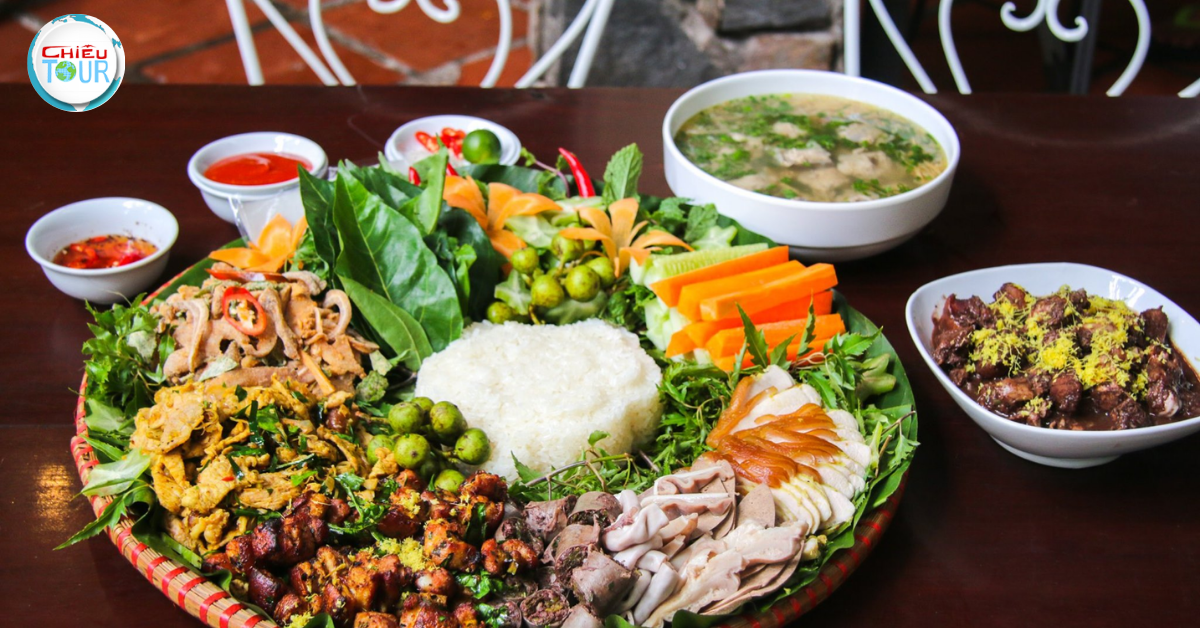Thanh Ha Pottery Village in Hoi An
- Author: Admin
- | Travel news
Thanh Ha Pottery Village in Hoi An is a vibrant reflection of Vietnam's rich cultural heritage. Located just a few kilometers from the enchanting ancient town of Hoi An, this village has been creating stunning pottery for centuries. Visitors are often captivated by the craftsmanship and artistry that goes into each piece, making it a must-visit destination for anyone exploring the region. Thanh Ha Pottery Village invites travelers to immerse themselves not only in the beauty of its wares but also in the stories and traditions behind the artisans' work.
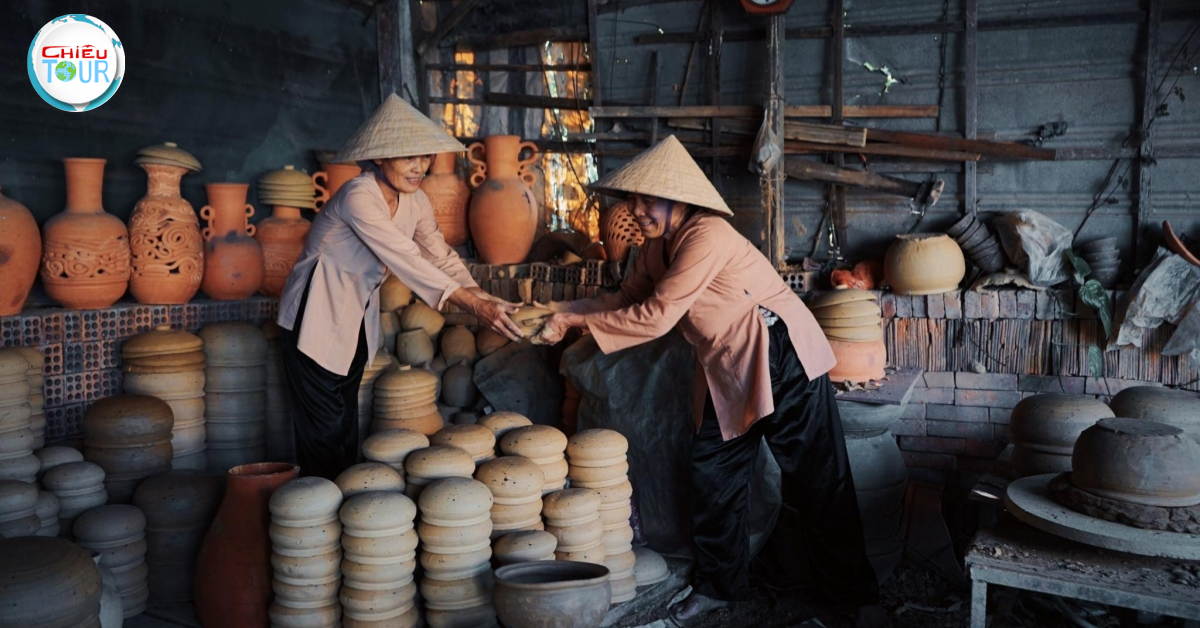
The History of Thanh Ha Pottery Village in Hoi An
The history of Thanh Ha Pottery Village in Hoi An is deeply rooted in the socio-economic development of the region.
Origins of the Village
The origins of Thanh Ha as a pottery center can be traced back to the late 15th century when the first settlers arrived. These artisans brought with them techniques and knowledge from their regions, primarily influenced by Chinese and indigenous Vietnamese styles. Over time, these techniques were adapted and evolved, giving rise to a unique style that reflects both practicality and artistry.
The geographical location of Thanh Ha contributed significantly to its growth. Sitting along the Thu Bon River, the village had easy access to clay deposits, which were essential for pottery production. This advantageous position allowed artisans to establish their craft and trade effectively.
Traditional Techniques and Materials
Traditional pottery techniques practiced in Thanh Ha have been passed down through generations. Artisans use local red clay, which is abundant in the area. The clay is often mixed with sand to create a durable material that withstands the test of time.
Potters employ various methods such as hand-building, wheel-throwing, and sculpting. Each method showcases the artisan’s skill and creativity. The process begins with molding the clay into shape, followed by drying and firing in kilns. The final stage involves glazing, where colorful designs are added to enhance the aesthetic appeal of the pieces.
Cultural Significance and Festivals
The cultural significance of Thanh Ha Pottery Village in Hoi An extends beyond mere aesthetics. Pottery plays an integral role in the daily lives of the villagers, serving both functional and decorative purposes. Local festivals, such as the traditional Mid-Autumn Festival, often feature pottery displays, highlighting the community's connection to their craft.
Moreover, the village has become a hub for tourism, drawing visitors who wish to learn about the craft firsthand. This influx of tourists has prompted the artisans to adapt modern designs while still preserving traditional techniques. It is a fascinating blend of old and new, ensuring that the legacy of Thanh Ha continues for future generations.
Visiting Thanh Ha Pottery Village in Hoi An
Visiting Thanh Ha Pottery Village in Hoi An offers a unique opportunity to witness the artistry of Vietnamese pottery firsthand.
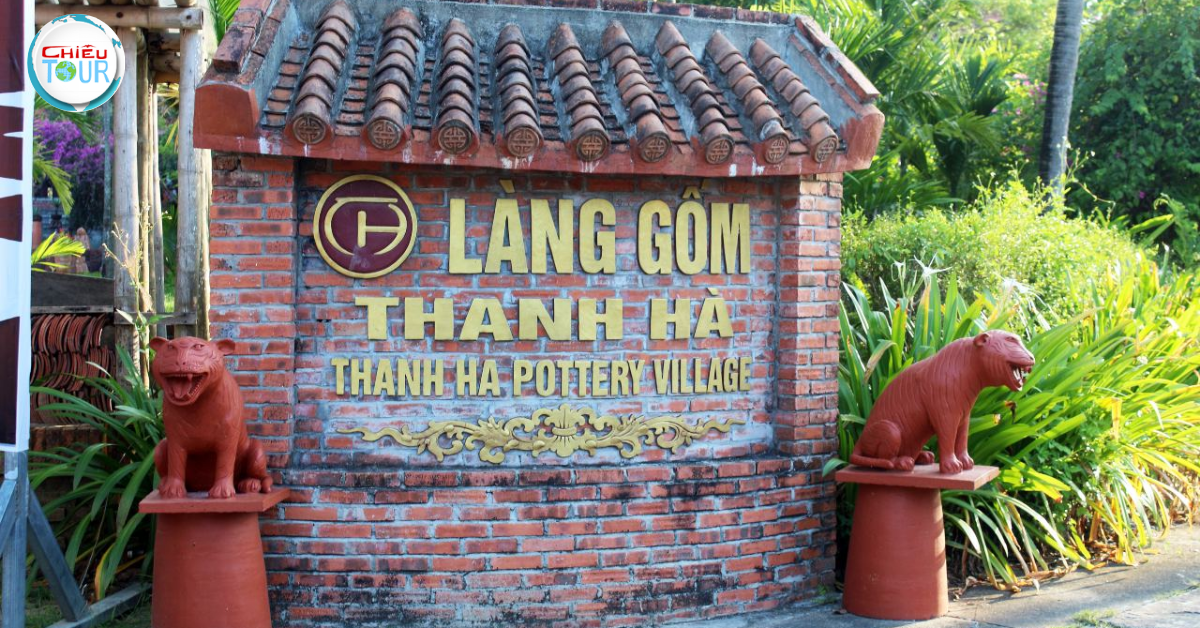
Getting to the Village
Reaching Thanh Ha Pottery Village is relatively easy for those staying in Hoi An. A short bike ride or a leisurely walk across the picturesque countryside leads visitors to the village. The lush landscapes along the way provide an authentic glimpse into rural Vietnamese life.
Upon arrival, visitors may notice the serene atmosphere and the welcoming smiles of the local artisans. The village itself is adorned with various pottery shops and workshops, each showcasing different styles and products.
Engaging in Pottery Workshops
One of the most popular activities at Thanh Ha Pottery Village is participating in pottery workshops. These hands-on experiences allow visitors to connect with the art form in a personal way. Under the guidance of skilled artisans, individuals can mold their own pieces, learning about the techniques that have shaped this village for centuries.
Workshops cater to all skill levels, making it accessible for everyone, from beginners to experienced potters. Participants often leave with a newfound appreciation for the craft and even take home their creations as keepsakes.
Exploring the Local Market
After engaging in pottery-making, visitors can explore the local market that flourishes within the village. Here, a range of pottery items is available for purchase, from traditional bowls and vases to contemporary art pieces.
Shopping at the market allows visitors to interact with the artisans, providing insight into their creative processes. Many artisans are eager to share their stories, allowing visitors to appreciate the dedication and effort that goes into each piece.
Cultural Immersion and Community Interaction
Interacting with the residents of Thanh Ha Pottery Village provides a deeper understanding of the community's lifestyle and traditions. Engaging in conversations with the artisans fosters connections and appreciation for their heritage.
Local food stalls often offer traditional Vietnamese dishes, allowing visitors to indulge in authentic flavors while enjoying the ambiance of the village. This cultural immersion enhances the overall experience, making it memorable and enriching.
The Contemporary Influence on Thanh Ha Pottery Village in Hoi An
While Thanh Ha Pottery Village is steeped in tradition, contemporary influences are shaping its future.
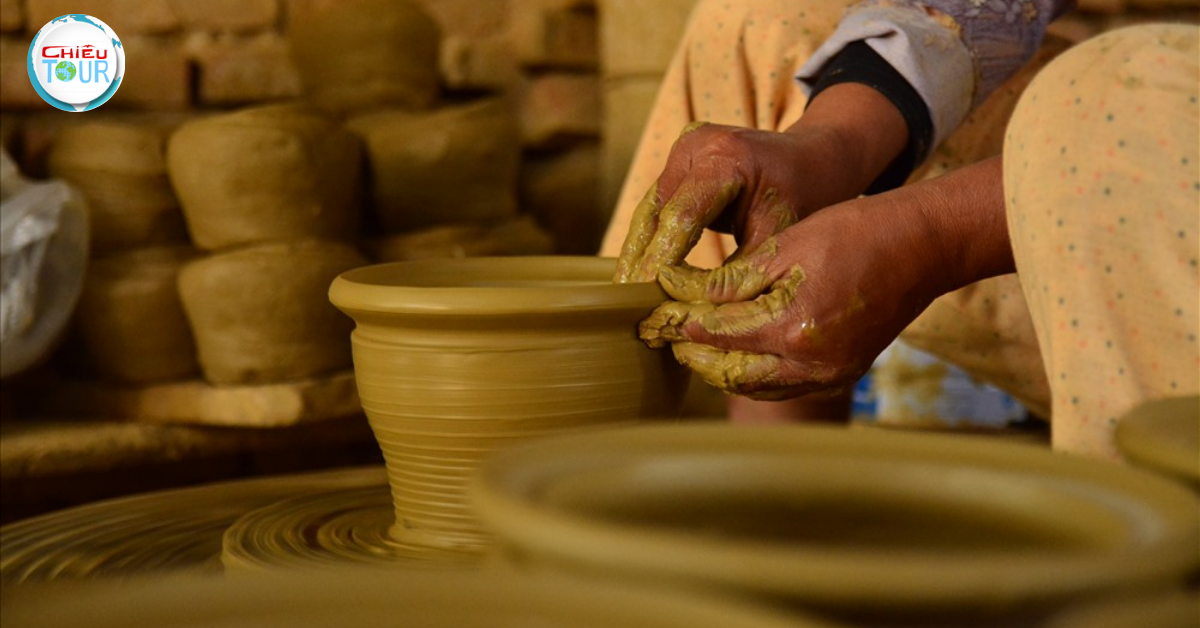
Modern Designs and Techniques
In recent years, artisans in Thanh Ha have begun experimenting with modern designs, catering to evolving tastes among domestic and international buyers. This fusion of styles embraces innovation while respecting traditional techniques.
Artisans are increasingly incorporating minimalist designs, bright colors, and unique shapes that attract younger customers and trendy decor enthusiasts. This evolution represents a dynamic shift in the pottery landscape of Thanh Ha, ensuring its relevance in today's marketplace.
Sustainability Practices
With a growing awareness of environmental issues, many potters in Thanh Ha are adopting sustainable practices in their craft. This shift includes sourcing eco-friendly materials and implementing energy-efficient firing techniques.
As part of this initiative, artisans are also focusing on reducing waste, recycling materials, and using natural glazes. Such practices not only benefit the environment but also resonate with conscious consumers who prioritize sustainably-made products.
International Collaboration and Recognition
International exposure has played a significant role in the evolution of Thanh Ha Pottery Village in Hoi An. Collaborative projects with foreign artists allow local artisans to exchange ideas, broaden their horizons, and elevate their craft.
Through exhibitions and cultural exchanges, Thanh Ha's pottery has gained recognition beyond Vietnam's borders. This international acclaim brings opportunities for artisans to showcase their work globally, further encouraging the preservation of traditional techniques while embracing contemporary creativity.
Challenges and Opportunities
Despite the positive developments, Thanh Ha Pottery Village faces challenges as it strives to maintain its identity amidst globalization. The rise of mass-produced pottery threatens the livelihood of local artisans.
However, these challenges present opportunities for artisans to differentiate their handmade products. Emphasizing quality, storytelling, and artistry enables them to carve out a niche in the competitive market, ensuring their craft remains valued and respected.
FAQs
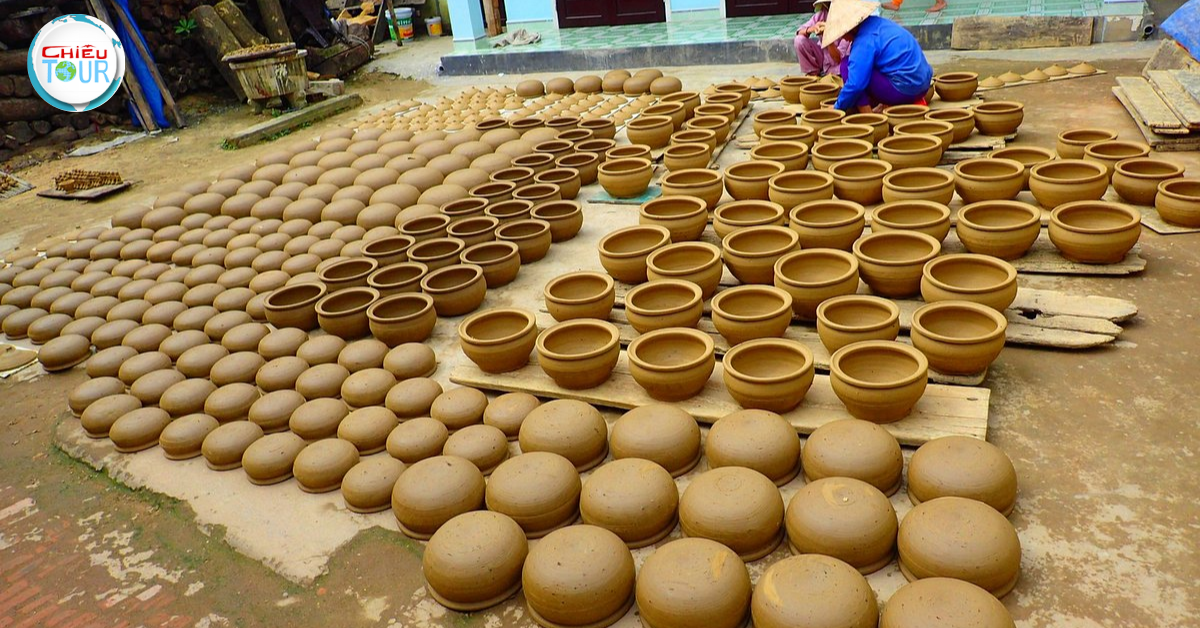
What is the best time to visit Thanh Ha Pottery Village in Hoi An?
The best time to visit Thanh Ha Pottery Village is during the dry season, which typically runs from February to April. During this period, the weather is pleasant, making it ideal for exploring the village and participating in outdoor activities.
Can I buy pottery directly from the artisans?
Yes, visitors can buy pottery directly from the artisans in Thanh Ha Pottery Village. The local market features a variety of pottery items, and purchasing directly supports the artisans and their craft.
Are there any guided tours available for visiting the village?
Yes, several local tour operators offer guided tours to Thanh Ha Pottery Village, including transportation and a knowledgeable guide. These tours often include pottery workshops and visits to multiple artisans.
Is it suitable for families to visit Thanh Ha Pottery Village?
Absolutely! Thanh Ha Pottery Village is family-friendly, offering activities such as pottery-making workshops that children and adults can enjoy together. It’s a great way to bond while experiencing Vietnamese culture.
How long should I plan to spend in Thanh Ha Pottery Village?
Visitors typically spend around two to three hours in Thanh Ha Pottery Village. This duration allows enough time to explore, participate in workshops, and shop for pottery without feeling rushed.
Conclusion
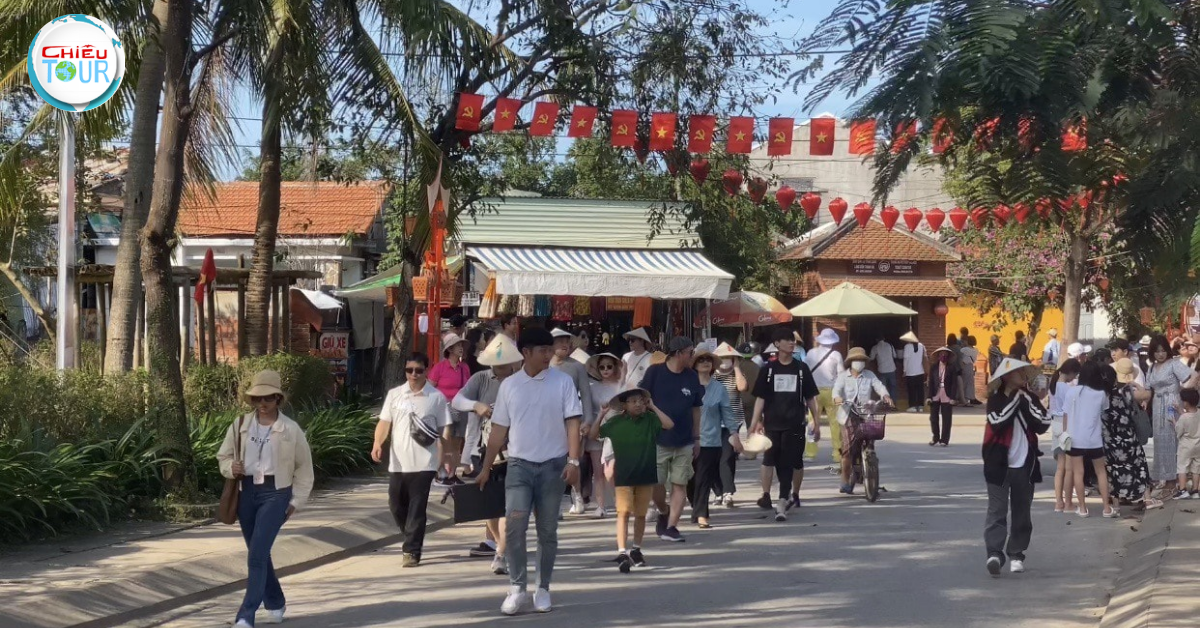
Thanh Ha Pottery Village in Hoi An stands as a testament to the resilience and creativity of Vietnamese artisans. Its rich history, stunning craftsmanship, and contemporary adaptations make it a captivating destination for travelers seeking an authentic cultural experience. By immersing oneself in the traditions and innovations of Thanh Ha, visitors gain a deeper appreciation for the artistry involved in pottery-making. The village invites everyone to witness firsthand the harmonious blend of history, culture, and modernity, ensuring its legacy continues for generations to come.
 Vietnam
Vietnam 

